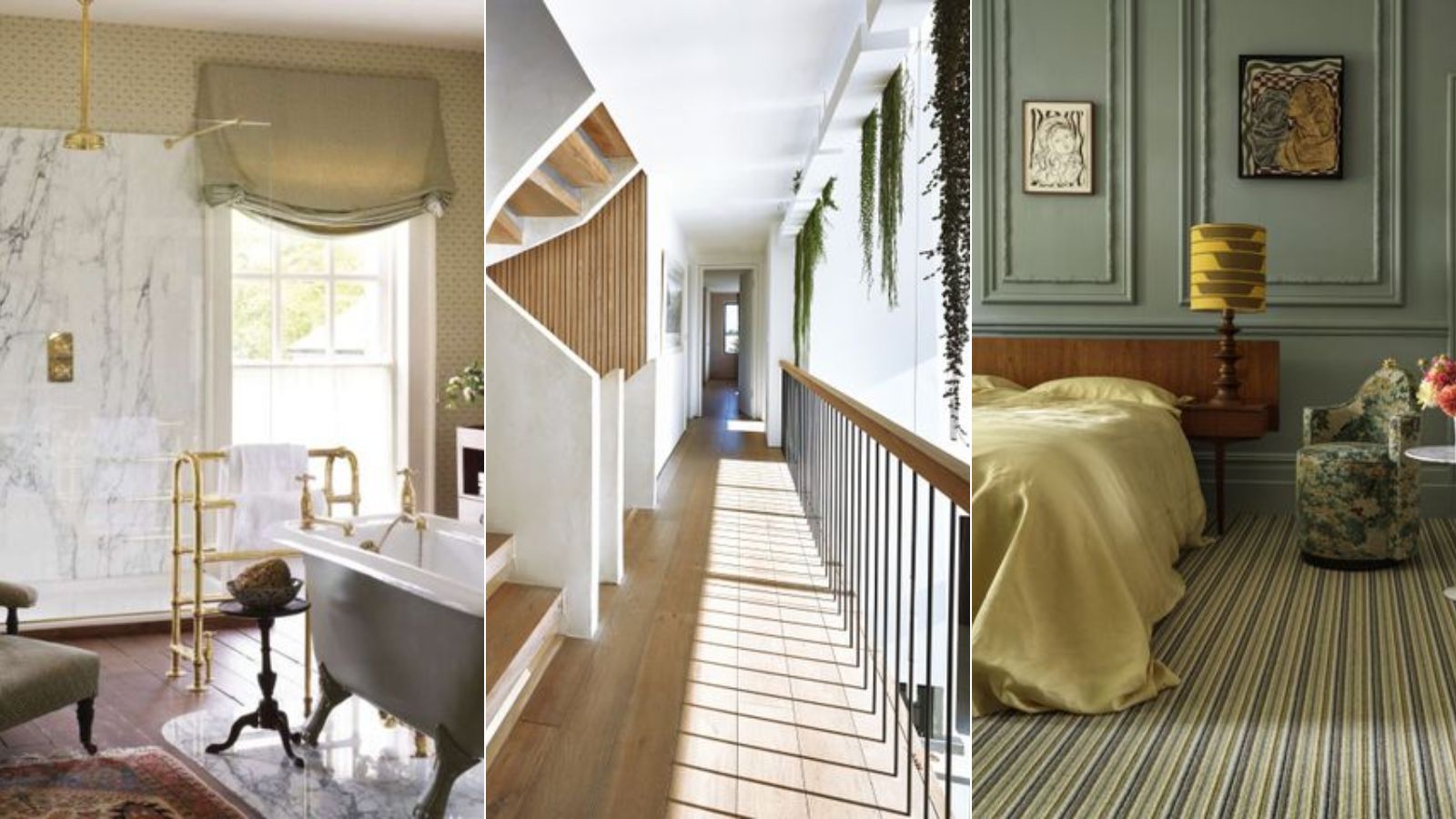
Choosing the right flooring for your home is an important investment, and while both carpet and hardwood flooring are beloved for their aesthetics and functionality, both options carry tradeoffs and strengths that distinguish each option.
Determining which is the best flooring choice for your home will depend on a range of factors, including your personal style, budget, and the specific needs of each room in your home. But ultimately, the decision will come down to the aspects that are most important to you.
In this comprehensive guide, we look at everything you should consider when choosing between carpet and hardwood flooring to help you make the best choice for your home.
Carpet vs hardwood flooring
'Where does one begin when considering comfort versus cleanability, cost versus longevity?' says Keely Smith, lead interior designer at JD Elite Interiors. 'Both flooring options have their pros and cons that homeowners must carefully consider based on the areas of the home and their individual lifestyle.'
In this guide, we will cover:
- Maintenance and cleaning
- Aesthetic appeal and versatility
- Lifespan and durability
- Comfort and insulation
- Room suitability
- Cost and installation
- Resale value
- Allergies and indoor air quality
- Environmental impact
1. Maintenance and cleaning
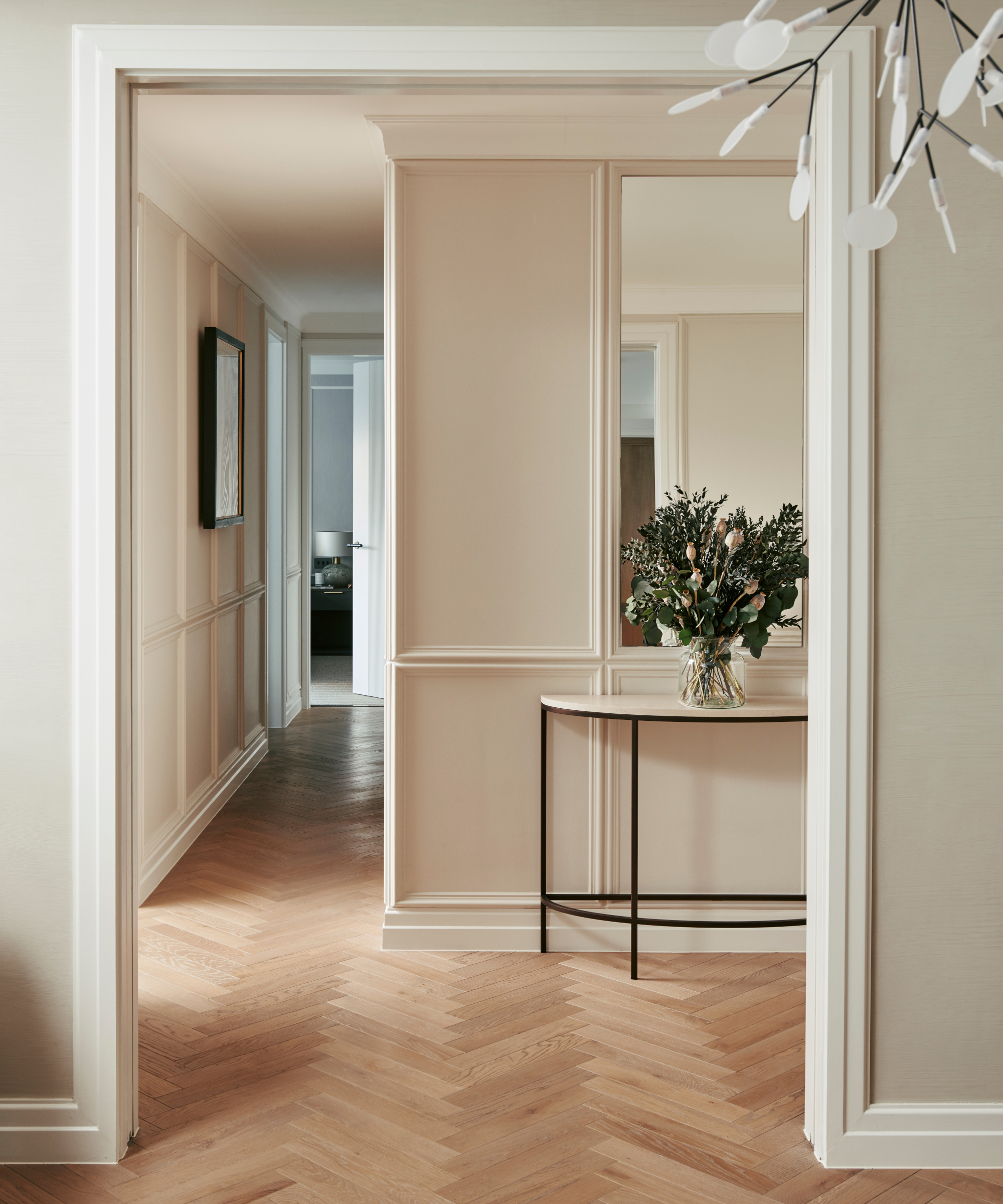
Both carpet and hardwood floors require specific maintenance to maximize their lifespan and appearance.
Hardwood Floors
Cleaning hardwood floors is usually easier than with carpets. 'Hardwood maintenance involves sweeping, dusting, and promptly addressing spills to protect the floor's finish without using too much water, which can damage wood,' says Keely Smith. You can also easily make DIY wood floor cleaner to make this process simpler.
Hardwood floors can handle more foot traffic and spills without showing any damage than carpets. 'However, it can be a challenge to maintain consistent humidity levels to prevent gaps and warping while preventing or repairing scratches, stains, and potential water damage,' says FLOOR360 interior designer Courtney Wollersheim. For hardwood, you might need to factor in a dehumidifier or humidifier, depending on your region's climate.
An added benefit of hardwood floors is that they can be sanded down and/or refinished if they aren't looking their best.
Carpets
'Carpet maintenance involves regular vacuuming to prevent dirt buildup, as well as periodically deep cleaning the carpet to remove allergens,' says Keely Smith. 'Heavy furniture and foot can impact the fibers over time in a way it will not with wood, requiring more frequent and thorough cleaning sessions.'
On the other hand, carpets are affected less by humidity, but it's crucial to clean red wine, food, or coffee spills promptly to prevent staining or mold from developing.
The Verdict
While cleaning and maintenance requirements can vary based on the specific type of hardwood or carpet, overall, hardwood flooring is a much simpler surface to clean and maintain.
2. Aesthetic appeal and versatility
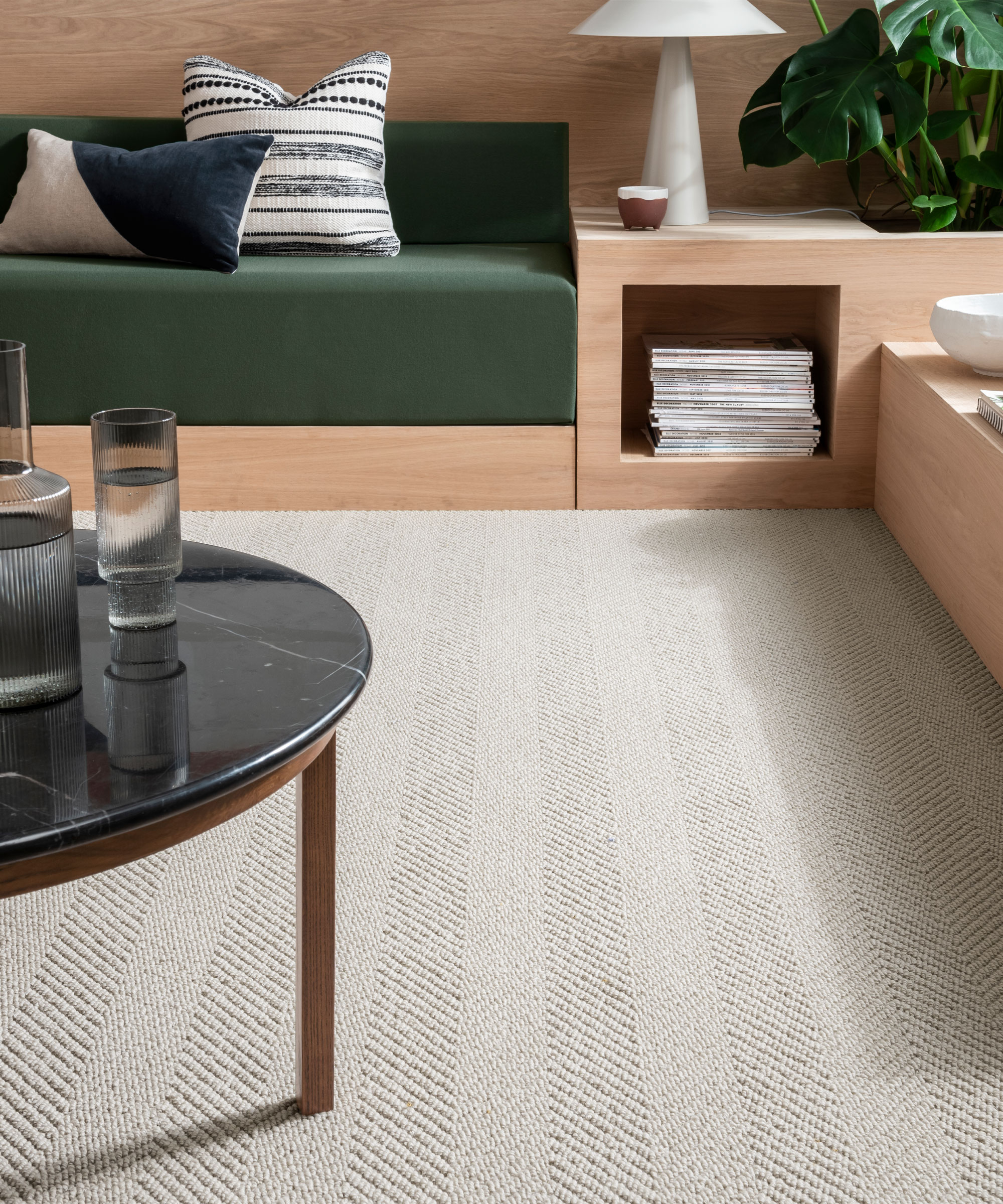
Hardwood Flooring
'Hardwood floors bring a timeless elegance to any space. Their natural grain patterns add a unique character that complements modern and traditional décor,' says Kenny Klinger, CEO of Go Flooring.
They come in numerous natural wood varieties, such as oak, maple, cherry, or bamboo, and wood can be stained in virtually any shade depending on your preference.
Hardwood floors offer plenty of versatility because you can refresh the look of a room with a large area rug every season (in contrast to fitted carpet).
Carpets
'Carpets come in a vast array of colors, patterns, textures, and pile heights, allowing for immense creative freedom in interior design,' says Kenny Klinger. 'From bold geometric patterns to soft, muted tones, there's a carpet for every aesthetic.'
However, carpet trends can quickly become dated, and while carpets can be replaced to suit your changing style, this can become an expensive bit of upkeep.
The Verdict
The best option, according to aesthetics, is highly subjective, but for most people, hardwood flooring tends to be more pleasing than carpet, which is important to keep in mind if you are considering selling your home anytime soon.
3. Lifespan and durability
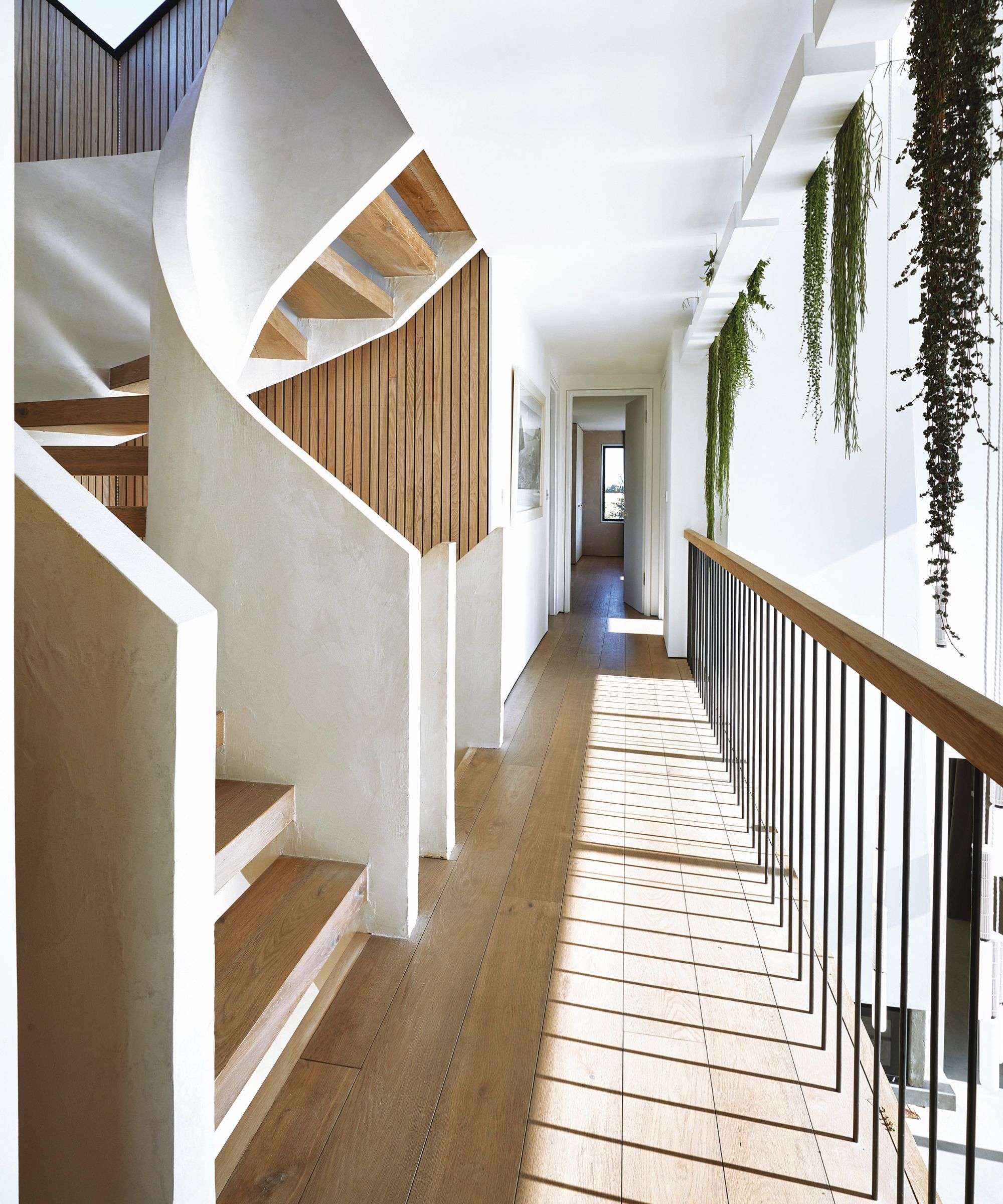
Hardwood Flooring
Hardwood flooring is renowned for its durability and longevity. These floors can also be refinished multiple times, extending their lifespan. For this reason, hardwood is the ideal flooring to use in high-traffic areas compared to carpets.
While hardwood is susceptible to stains, you can purchase refinished options with protective coatings that offer extra protection and stain resistance. However, it's worth noting that hardwood may dent or scratch more easily if heavy furniture is moved across it without lifting. These floors can also be damaged if exposed to moisture and high humidity levels.
Carpets
Certain types of fibers – like nylon or polyester – are ideal for handling heavy foot traffic and will resist crushing or matting.
Though it is possible to purchase stain-resistant carpets, most styles of carpet will show stains and signs of wear more visibly than hardwood floors in high-traffic areas.
The Verdict
When it comes to long-term durability, hardwood floors have an edge over carpets.
4. Comfort and insulation
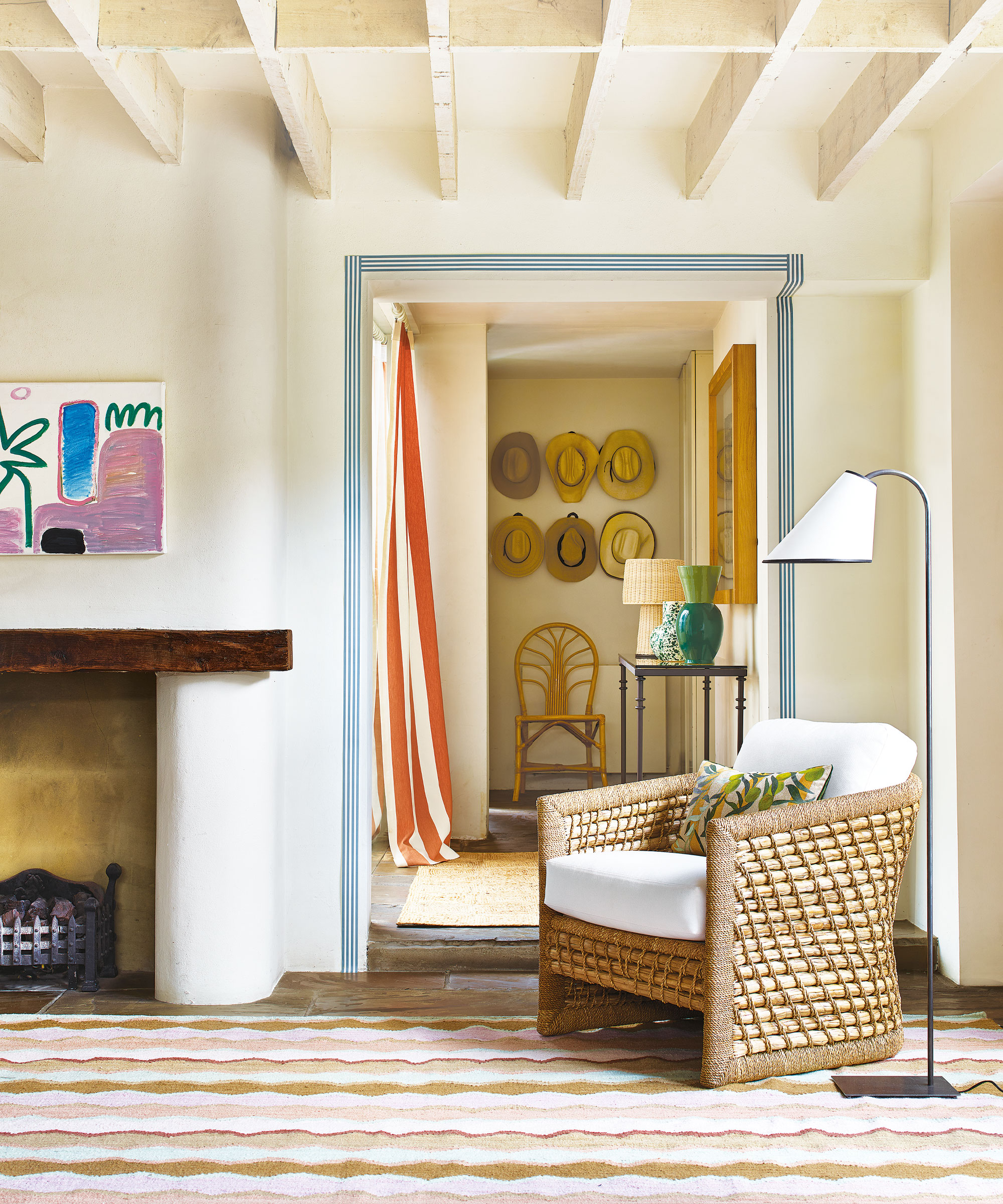
Hardwood flooring
Hardwood floors can be cold during winter, requiring underfloor heating, underlay, or additional rugs to absorb sound and provide warmth. Hardwood floors may also have cracks that will allow cold air to rise through the floor.
Carpets
Carpet, in contrast, has a soft texture that provides a comfortable and cozy feel underfoot. 'Carpet retains heat, making it a cozy choice in cooler climates or for homes with drafty rooms,' says Kenny Klinger. 'It can also act as an insulator, reducing energy bills during colder months.'
'Carpet also absorbs sound better, muffling footsteps and creating a quieter, more serene environment.'
The Verdict
Carpet provides a comfortable walking surface, as well as better insulation, and reduced noise levels, if you are seeking to soundproof a room. Overall, this makes it the superior option in regards to comfort and insulation.
5. Room suitability
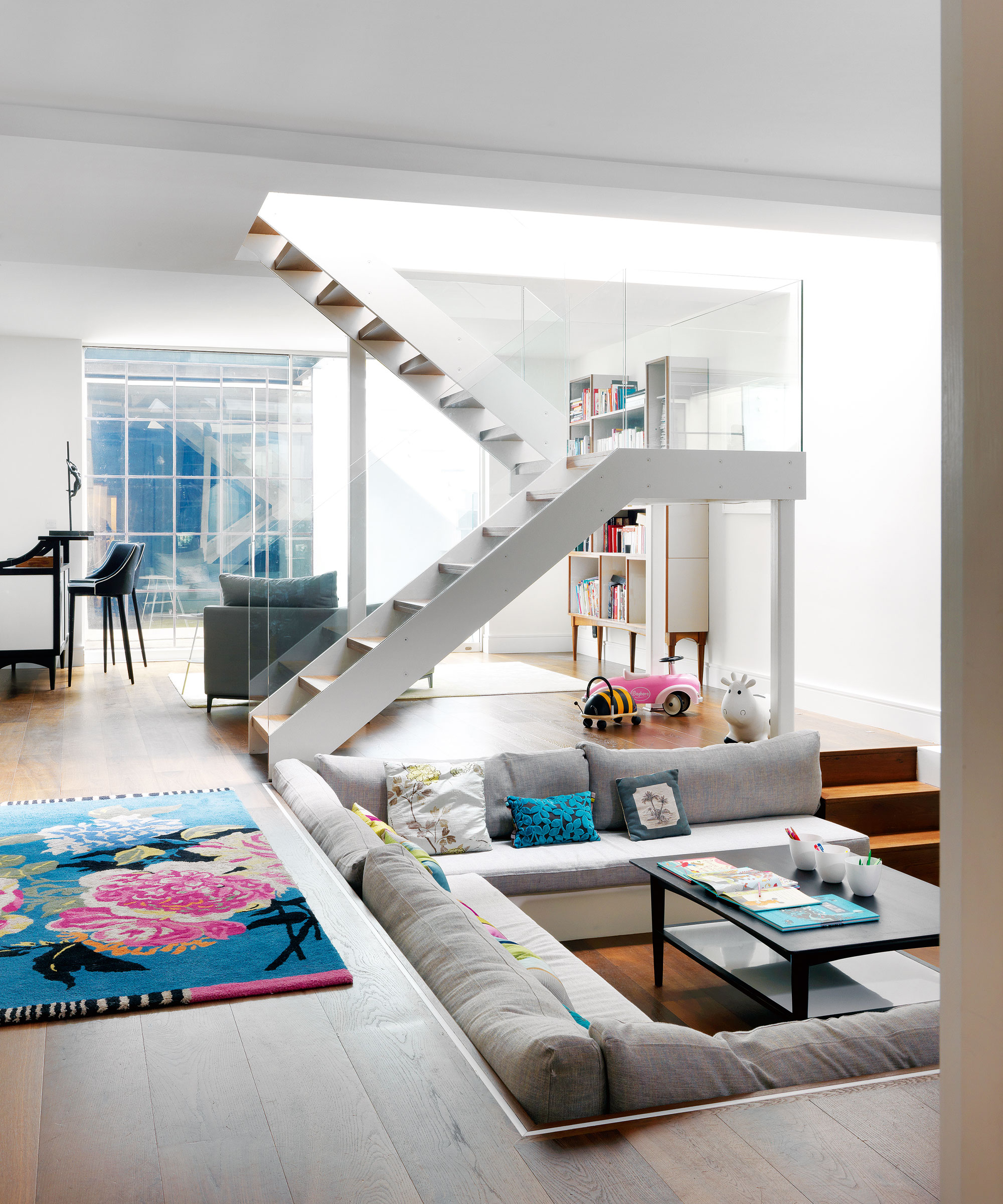
Hardwood Flooring
'Consider hardwood for high-traffic areas like the kitchen or dining room since it's less prone to staining and easier to clean after spills,' recommends Kerry Sherin, home expert at Ownerly.
Carpets
Carpet is favored in bedrooms and living areas for its warmth and comfort. It is also more desirable in spaces where acoustics are a consideration, such as upstairs rooms, movie rooms, or music rooms.
The Verdict
The choice between both options will depend on how you intend to use specific rooms in your home. However, hardwood is seen as a more universal flooring solution, whereas carpet is typically utilized for a specific purpose (such as sound absorption or insulating a space).
6. Cost and installation
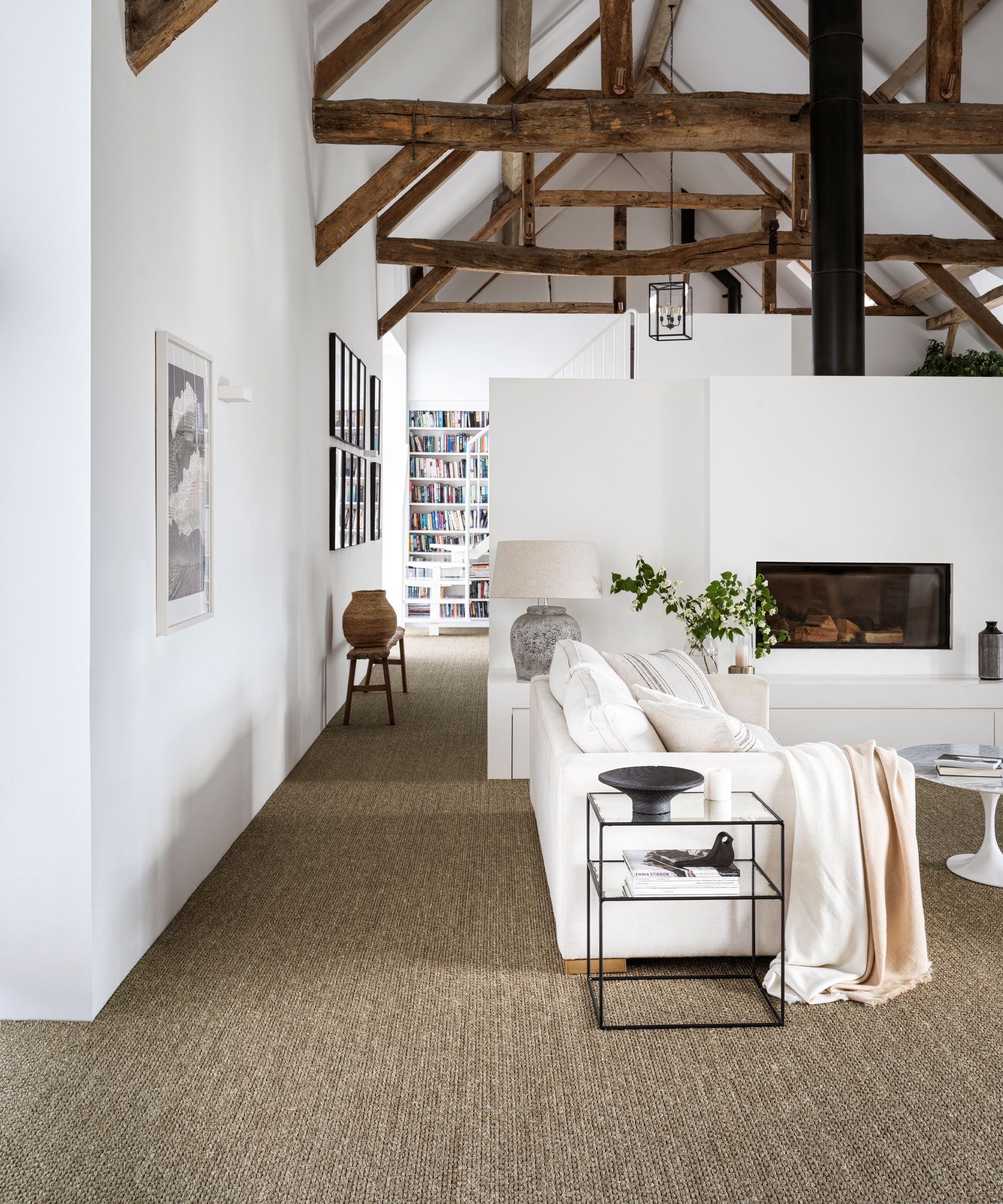
Hardwood Flooring
Hardwood floors are undeniably the more expensive option, costing between $7 to $25 per square foot. However, since they are durable – lasting 25-100 years, especially if they are refinished every 7-10 years – the cost to install hardwood floors can be viewed as a worthwhile investment over time.
Carpets
If you're watching your budget, carpets are the cost-effective choice, with prices ranging from $2 to $12 per square foot, including replacement costs and installation. However, carpets won't last as long as hardwood floors, with a typical lifespan of around 10-15 years.
The Verdict
It's essential to consider your budget for installation and future maintenance when choosing between carpet vs hardwood flooring, remembering that the cost of hardwood flooring may be offset by its longer lifespan and lower maintenance requirements.
7. Resale value
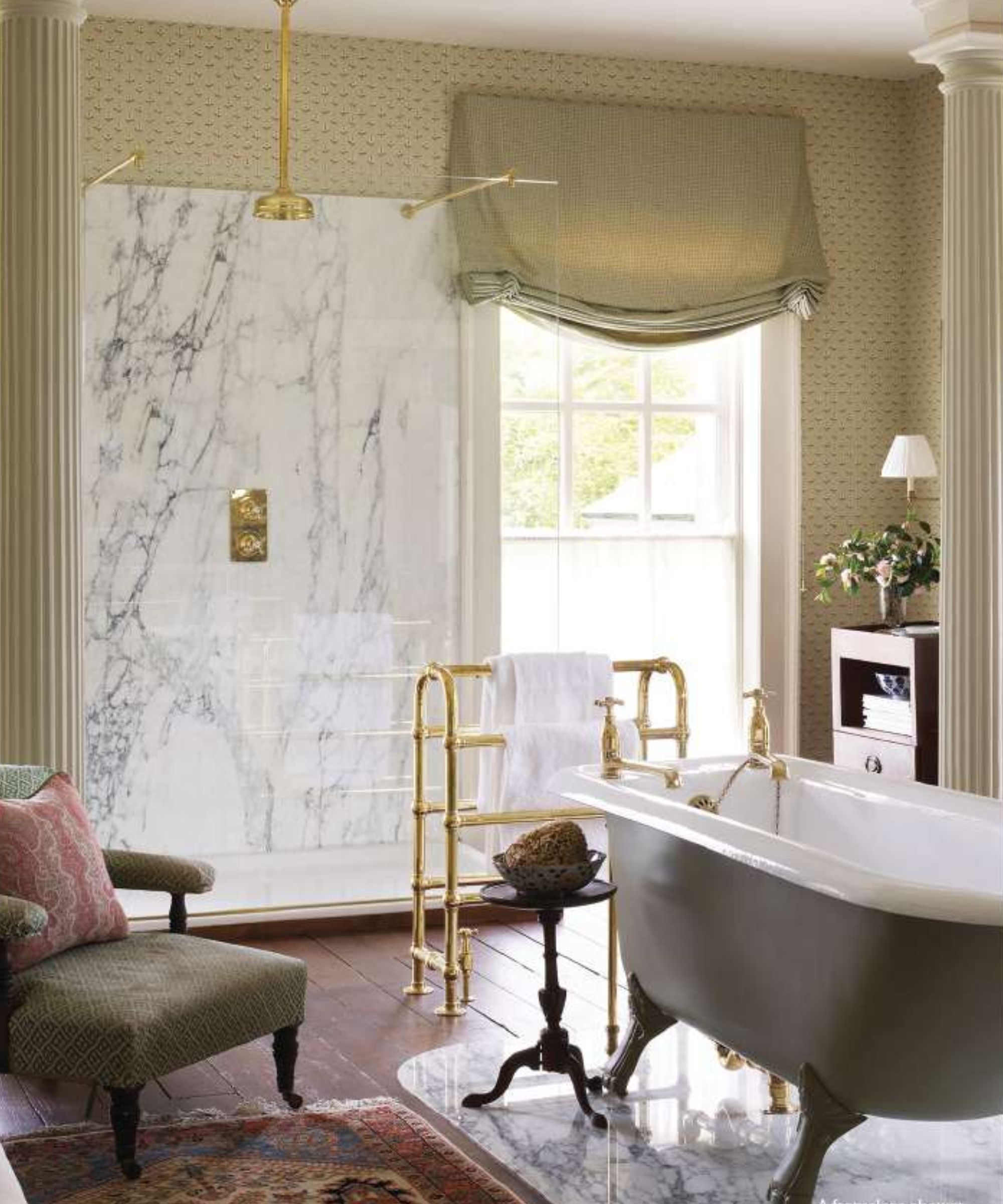
Hardwood flooring
'Hardwood flooring is the gold standard in providing beauty and satisfaction, ensuring high resale value and return on investment to any home where it's installed,' says Courtney Wollersheim, interior designer.
Carpets
'Carpet, on the other hand, may not have the same impact on resale value, as it is more subject to wear and tear and may need to be replaced before selling a home,' says Kerry Sherin, home expert.
The Verdict
'When it comes to improving selling potential, nothing beats the look of real hardwood,' concludes Kerry Sherin. 'It's often a selling point for potential buyers, making it a smart, long-term investment. Carpeting usually adds little real estate value because it is seen as an inexpensive, short-lived flooring material. However, new carpeting will undoubtedly be regarded as an improvement over shabby old flooring.'
8. Allergies and indoor air quality
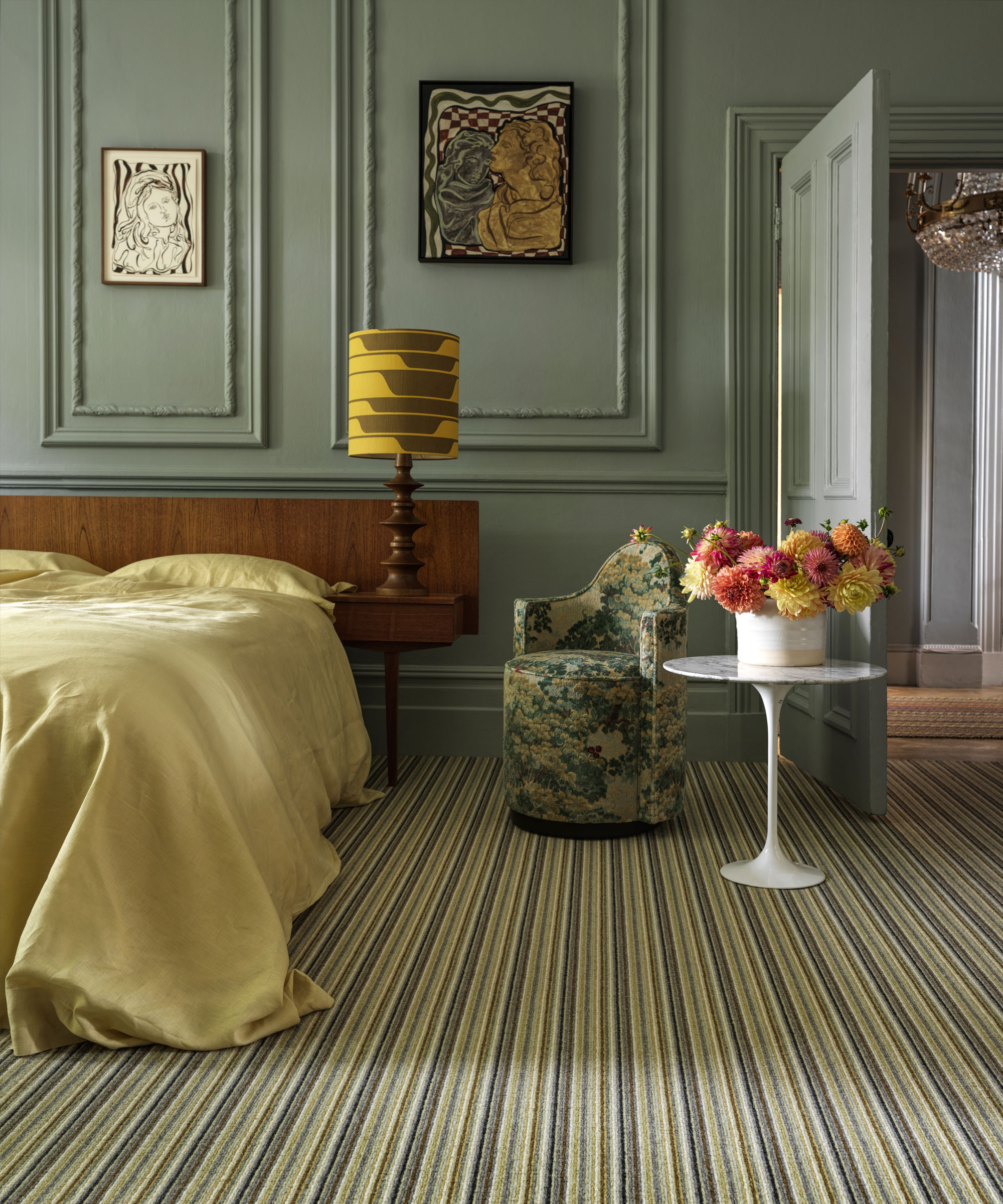
Hardwood Flooring
Hardwood flooring is a great option for those who have pets or allergies, as it's easy to clean and does not trap pet dander, dust, and other allergens like carpets do. This also makes it the superior choice when considering indoor air quality.
Carpets
Carpets can trap allergens and require regular deep cleaning, which might be a concern for households with allergies or respiratory issues. You can, however, find carpets made with more hypoallergenic materials, such as wool, which act as an air filter, trapping allergens in the pile.
If you opt for carpets, you will likely want to invest in the best vacuum cleaners for pet hair.
The Verdict
Hardwood flooring is far superior for anyone concerned with allergies or indoor air quality.
9. Environmental impact
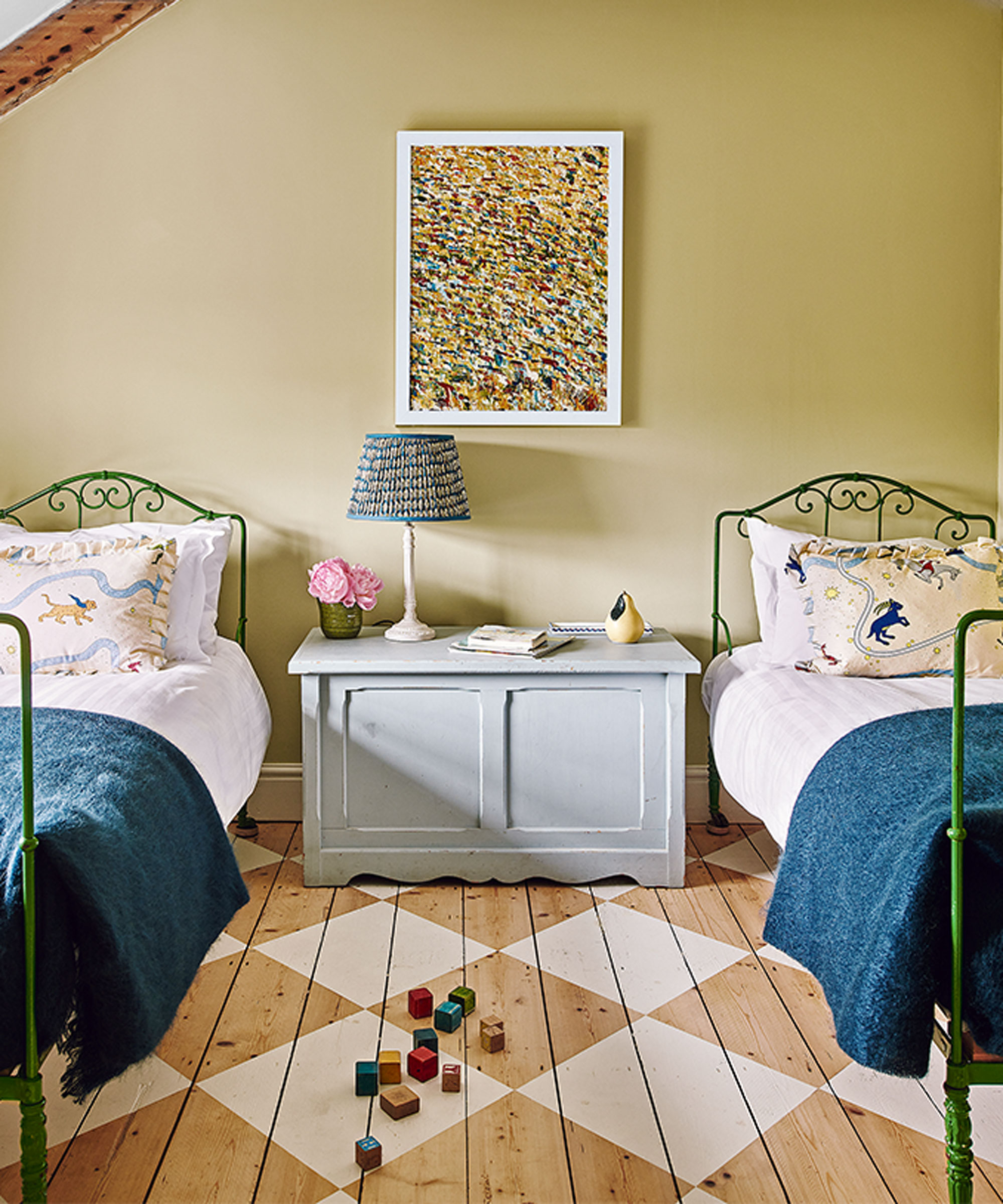
Hardwood flooring
Hardwood is a natural and renewable resource, and many manufacturers follow sustainable forestry practices. When in doubt, try to do your research or reach out to the flooring provider to learn more about their ethics.
Carpets
Carpet, on the other hand, is often made from synthetic fibers and may contain chemicals that can be harmful to the environment.
'A sustainable option for carpeting is wool, which is biodegradable, hypoallergenic, fire resistant and wears much better over time than its polyester and nylon counterparts,' explains Courtney Wollersheim, interior designer.
Natural carpets are also a great option to consider, with options such as seagrass, coir, and jute proving to be popular choices for green homes.
The Verdict
'Currently, the biggest edge hardwood flooring has over carpet is sustainability,' says Courtney Wollersheim. When it comes to the environmental impact, hardwood flooring is generally considered a more sustainable and eco-friendly choice.
The choice between carpet and hardwood should ultimately be guided by personal preference, lifestyle, and the specific needs of your household. While flooring trends can influence your decision, don't overlook factors such as comfort, functionality, and your overall vision for a space.
If you want to go for hardwood floors but the price and maintenance are putting you off, consider modern Luxury Vinyl Tile (LVT) and laminate options, which could be a great alternative. As well as being more affordable, they are designed to closely mimic hardwood's appearance and are often more resistant to scratches and moisture, making them a practical choice for busy households.







